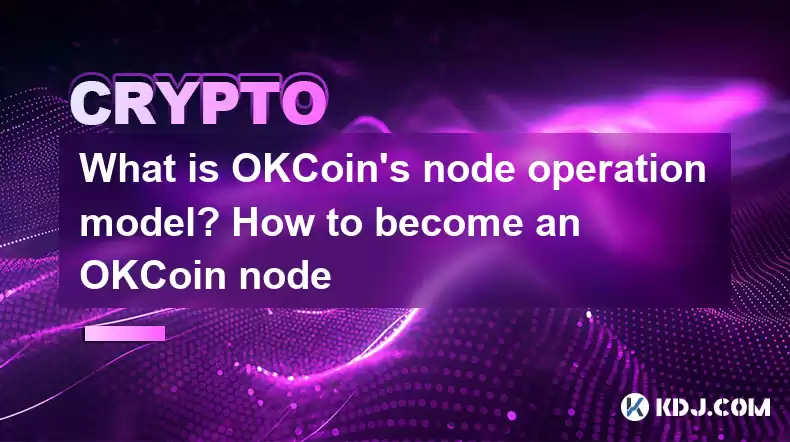-
 Bitcoin
Bitcoin $119100
-2.16% -
 Ethereum
Ethereum $4300
-0.31% -
 XRP
XRP $3.171
-2.99% -
 Tether USDt
Tether USDt $1.000
-0.01% -
 BNB
BNB $814.1
-1.33% -
 Solana
Solana $176.5
-4.67% -
 USDC
USDC $0.0000
0.00% -
 Dogecoin
Dogecoin $0.2267
-5.83% -
 TRON
TRON $0.3465
2.15% -
 Cardano
Cardano $0.7870
-4.98% -
 Chainlink
Chainlink $21.66
-2.27% -
 Hyperliquid
Hyperliquid $43.89
-4.62% -
 Stellar
Stellar $0.4414
-3.35% -
 Sui
Sui $3.707
-6.73% -
 Bitcoin Cash
Bitcoin Cash $599.1
3.73% -
 Hedera
Hedera $0.2504
-6.96% -
 Ethena USDe
Ethena USDe $1.001
-0.01% -
 Avalanche
Avalanche $23.21
-4.99% -
 Litecoin
Litecoin $121.1
-3.55% -
 Toncoin
Toncoin $3.415
0.45% -
 UNUS SED LEO
UNUS SED LEO $9.002
-1.24% -
 Shiba Inu
Shiba Inu $0.00001314
-5.43% -
 Uniswap
Uniswap $11.45
1.63% -
 Polkadot
Polkadot $3.926
-5.37% -
 Cronos
Cronos $0.1694
1.63% -
 Ethena
Ethena $0.8117
-2.35% -
 Dai
Dai $1.000
0.00% -
 Bitget Token
Bitget Token $4.422
-1.43% -
 Monero
Monero $264.2
-0.83% -
 Pepe
Pepe $0.00001137
-8.29%
What is OKCoin's node operation model? How to become an OKCoin node
OKCoin operates a centralized exchange, unlike decentralized blockchains. It doesn't offer public node operation; participation involves using their platform, not running nodes. However, technical roles within OKCoin contribute to its infrastructure.
Mar 11, 2025 at 04:50 am

Key Points:
- OKCoin doesn't operate a public, permissionless blockchain like Bitcoin or Ethereum. Therefore, the concept of "running a node" in the traditional sense doesn't directly apply.
- OKCoin's infrastructure is a proprietary, centralized exchange. Their internal systems manage transactions and maintain order book data. This is fundamentally different from decentralized networks.
- Participation in OKCoin's network is primarily through using their exchange platform, not by running a node.
- While OKCoin doesn't offer node operation, there are opportunities for technical roles within their company that contribute to their infrastructure.
What is OKCoin's node operation model?
Unlike cryptocurrencies employing a decentralized, blockchain-based network, OKCoin operates as a centralized exchange. This means there isn't a publicly accessible network of nodes that users can run. The exchange's infrastructure is privately managed and controlled by OKCoin itself. They maintain their own servers and databases to handle trading, order matching, and other crucial exchange functions. This centralized structure differs greatly from the distributed ledger technology underlying many cryptocurrencies.
The core functionality, including order book management, matching engine, and wallet management, resides within OKCoin's own data centers and infrastructure. This approach prioritizes speed and efficiency in processing transactions, a characteristic crucial for a high-volume exchange. Security measures are implemented at the infrastructure level to protect user funds and operational integrity. This centralized architecture contrasts with the distributed, consensus-based model of public blockchains.
OKCoin's technological approach relies heavily on internal systems and specialized hardware. They invest significantly in high-performance computing and robust security protocols. Transparency into the specifics of their internal architecture is limited, as it's considered proprietary information vital for the security and competitive advantage of the exchange. The focus is on providing a stable and reliable trading platform for their users.
The centralized nature means no external parties run or maintain nodes for OKCoin. The entire operation is internally managed, with a focus on speed, security, and operational efficiency. This stands in contrast to decentralized cryptocurrencies, which rely on the participation of a distributed network of nodes for their operation and security.
How to become an OKCoin node?
As explained earlier, there's no model for becoming an OKCoin node in the traditional sense of participating in a decentralized network. OKCoin doesn't operate a system that allows external parties to run nodes to validate transactions or maintain the network.
However, individuals can contribute to OKCoin's infrastructure in other ways. There are various job opportunities available at OKCoin, ranging from software engineering and system administration to security roles. These positions involve working directly on the technologies that underpin the exchange's operations.
- Software Engineering: Contribute to the development and maintenance of the exchange's trading platform, matching engine, and other core systems.
- System Administration: Manage and maintain the servers and infrastructure that power the exchange.
- Security Engineering: Work to ensure the security and integrity of the exchange's systems and user funds.
- Data Science: Analyze trading data to improve the exchange's algorithms and services.
These are just a few examples. By working at OKCoin in a technical capacity, individuals can indirectly contribute to the smooth and efficient operation of the platform. But it's crucial to understand that this is different from running a node in a decentralized blockchain network.
Common Questions:
Q: Can I run a node to earn rewards on OKCoin?
A: No. OKCoin does not have a node-based reward system. Its operation is centralized, unlike cryptocurrencies with proof-of-stake or similar mechanisms.
Q: Is OKCoin's centralized model less secure than a decentralized network?
A: Both centralized and decentralized systems have their security strengths and weaknesses. A centralized exchange like OKCoin can implement robust security measures at the infrastructure level. However, a single point of failure is a potential vulnerability. Decentralized networks offer greater resilience but can be more complex to secure.
Q: Does OKCoin use any form of consensus mechanism?
A: OKCoin doesn't utilize a public consensus mechanism like Proof-of-Work or Proof-of-Stake. Its internal systems manage transaction processing and order execution.
Q: How does OKCoin ensure the integrity of its data?
A: OKCoin employs various security measures, including data backups, redundancy, and sophisticated security protocols. The specifics are largely proprietary.
Q: What are the advantages of OKCoin's centralized model?
A: Centralization allows for faster transaction speeds and potentially simpler user experience. However, this comes at the cost of reduced decentralization and the associated benefits of resilience and censorship resistance.
Q: Are there any open-source components of OKCoin's infrastructure?
A: OKCoin's core infrastructure is not open-source. It's proprietary technology developed and maintained internally.
Q: What happens if OKCoin's central servers go down?
A: A significant outage of OKCoin's servers would disrupt trading and access to user accounts. OKCoin likely has contingency plans and redundancy to minimize such disruptions.
Q: Can I participate in the governance of OKCoin?
A: OKCoin's governance is not decentralized; it's managed by the company itself. There are no mechanisms for external community participation in governance decisions.
Disclaimer:info@kdj.com
The information provided is not trading advice. kdj.com does not assume any responsibility for any investments made based on the information provided in this article. Cryptocurrencies are highly volatile and it is highly recommended that you invest with caution after thorough research!
If you believe that the content used on this website infringes your copyright, please contact us immediately (info@kdj.com) and we will delete it promptly.
- Dogecoin, Presale, Surge: Riding the Meme Coin Wave
- 2025-08-12 11:10:12
- Dogecoin, Tron, and the ROI Reality Check: What's a Crypto Investor to Do?
- 2025-08-12 11:15:12
- Ethereum Layer-2 Scaling Competition Heats Up as ETH Breaks $4K
- 2025-08-12 10:30:12
- China Regulation, Stablecoins, and BNB Presale: Navigating the Crypto Landscape
- 2025-08-12 11:30:12
- Meme Coins, Investment, and Token Burns: What's Hot in 2025?
- 2025-08-12 10:30:12
- BlockDAG, Chainlink, Hedera: The Cryptos Enterprises are Eyeing
- 2025-08-12 09:30:12
Related knowledge

How to purchase Aragon (ANT)?
Aug 09,2025 at 11:56pm
Understanding Aragon (ANT) and Its PurposeAragon (ANT) is a decentralized governance token that powers the Aragon Network, a platform built on the Eth...

Where to trade Band Protocol (BAND)?
Aug 10,2025 at 11:36pm
Understanding the Role of Private Keys in Cryptocurrency WalletsIn the world of cryptocurrency, a private key is one of the most critical components o...

What is the most secure way to buy Ocean Protocol (OCEAN)?
Aug 10,2025 at 01:01pm
Understanding Ocean Protocol (OCEAN) and Its EcosystemOcean Protocol (OCEAN) is a decentralized data exchange platform built on blockchain technology,...

Where can I buy UMA (UMA)?
Aug 07,2025 at 06:42pm
Understanding UMA and Its Role in Decentralized FinanceUMA (Universal Market Access) is an Ethereum-based decentralized finance (DeFi) protocol design...

How to buy Storj (STORJ) tokens?
Aug 09,2025 at 07:28am
Understanding Storj (STORJ) and Its Role in Decentralized StorageStorj is a decentralized cloud storage platform that leverages blockchain technology ...

Where to find the best price for Audius (AUDIO)?
Aug 11,2025 at 04:01pm
Understanding the Basics of Ethereum StakingEthereum staking refers to the process of locking up ETH tokens to support the security and operations of ...

How to purchase Aragon (ANT)?
Aug 09,2025 at 11:56pm
Understanding Aragon (ANT) and Its PurposeAragon (ANT) is a decentralized governance token that powers the Aragon Network, a platform built on the Eth...

Where to trade Band Protocol (BAND)?
Aug 10,2025 at 11:36pm
Understanding the Role of Private Keys in Cryptocurrency WalletsIn the world of cryptocurrency, a private key is one of the most critical components o...

What is the most secure way to buy Ocean Protocol (OCEAN)?
Aug 10,2025 at 01:01pm
Understanding Ocean Protocol (OCEAN) and Its EcosystemOcean Protocol (OCEAN) is a decentralized data exchange platform built on blockchain technology,...

Where can I buy UMA (UMA)?
Aug 07,2025 at 06:42pm
Understanding UMA and Its Role in Decentralized FinanceUMA (Universal Market Access) is an Ethereum-based decentralized finance (DeFi) protocol design...

How to buy Storj (STORJ) tokens?
Aug 09,2025 at 07:28am
Understanding Storj (STORJ) and Its Role in Decentralized StorageStorj is a decentralized cloud storage platform that leverages blockchain technology ...

Where to find the best price for Audius (AUDIO)?
Aug 11,2025 at 04:01pm
Understanding the Basics of Ethereum StakingEthereum staking refers to the process of locking up ETH tokens to support the security and operations of ...
See all articles

























































































